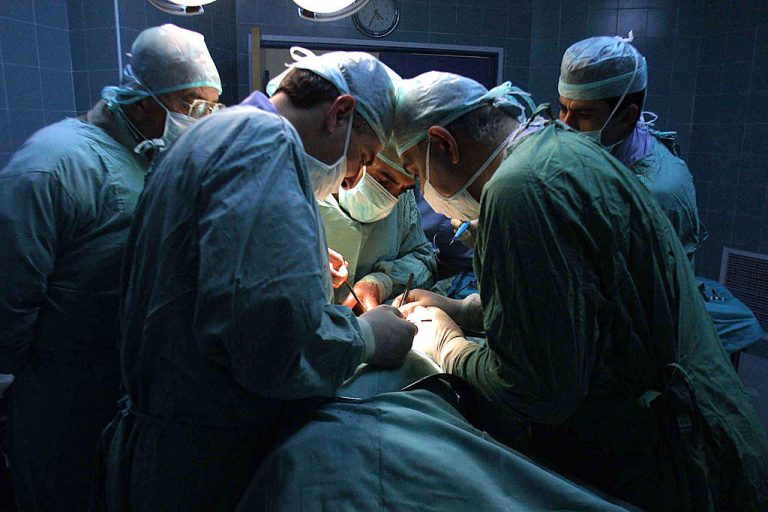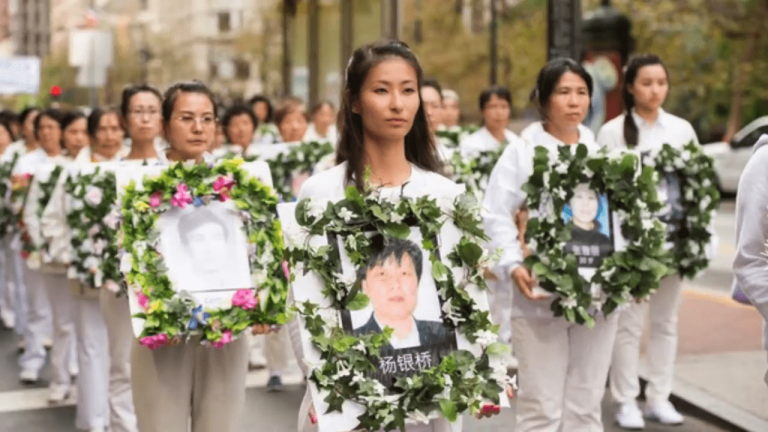OTTAWA, Ontario — After nearly 15 years of legislative efforts, Canadian lawmakers have unanimously passed a bill aimed at combating forced organ harvesting and trafficking abroad.
In the House of Commons on Dec. 14, MPs across party lines cast their vote in support of Bill S-223 introduced by Sen. Salma Ataullahjan last November. The bill makes it a criminal offence for a Canadian citizen or a permanent resident to go abroad to receive an organ taken from someone who did not give informed consent to the removal of the organ. It would also amend the Immigration and Refugee Protection Act to render a permanent resident or foreign national inadmissible to Canada if they engaged in activities relating to trafficking in human organs.
Upon the bill receiving royal assent and officially becoming an act of Parliament, Canada is joining the ranks of countries such as the UK, Italy, Israel, Belgium, Norway, Spain, South Korea, and Taiwan that have passed legislation to combat forced organ harvesting, organ transplant tourism, and organ trafficking.
“This is a critical step towards putting a stop to the global practice of people being killed or exploited for their organs,” Conservative MP Garnett Genuis, the sponsor of the bill in the House, said on Twitter moments after the bill passed.
In his speech delivered at a reception of celebrating the historic win that was held in the Wellington Building on Parliament Hill, Genuis said that Bill S-223 is special as an extraterritorial application of criminal law.
Success
You are now signed up for our newsletter
Success
Check your email to complete sign up
“That’s an expression of our commitment to universal human solidarity, to not just punish torture crimes and injustice that happened here in Canada, but to be willing to use our Criminal Code to say that certain things done to a human being are wrong and should be prosecuted not only if they happen here, but wherever they happen in the world, because they are universally wrong.”
Winnipeg-based human rights lawyer David Matas, who has researched the Chinese regime’s organ harvesting of Falun Gong practitioners, said the passage of the legislation means lives will be saved.
“Stopping organ harvesting would mean that innocents would cease to be killed for their organs, an important result, if it does happen, since there are many victims of this abuse,” Matas said in an email on Dec. 13.
Unanimous Support
MPs of all political stripes have unanimously voted in favour of Bill S-223. The third reading of the bill completed on Dec. 5.
Speaking in Parliament on Dec. 5, Liberal MP Sameer Zuberi, a sponsor of Bill S-223, said the bill is a critical piece of legislation that would “help us address a grave and serious human rights concern” and sends a “clear and strong signal that we as a country do not accept this [crime].”
Zuberi noted that Canada’s Criminal Code does not address criminality with regard to organ harvesting outside of Canada, which the bill aims to address.
Genuis said Bill S-223 recognizes a basic moral principle that killing people or exploiting them for their organs is wrong and should be stopped anywhere it occurs.

“The absence of any limits on national sovereignty aimed at protecting universal human rights would create a reality in which we would look the other way when nations would commit the most dastardly crimes toward their own people,” he said in the House on Dec. 5.
“Any moral person who believes in justice and universal human dignity must, at a certain point, refuse to consent to allowing certain evils to be committed in the name of national sovereignty.”
NDP MP Alistair MacGregor said he was glad there is recognition among MPs that Bill S-223 is an important and long-overdue change to criminal law.
“I think it sends a strong message to people who live around the world, who are not only facing these barbaric practices under regimes such as China,” he said on Dec. 5.
Bloc Québécois MP Kristina Michaud said it is the duty of MPs to legislate Bill S-223 because it is “a step in the right direction when it comes to fighting organ trafficking.”
“This is a matter of organized crime with many offenders, recruiters, transporters, hospital clinic personnel, health professionals who carry out the surgery, intermediaries, buyers, organ banks—there are many actors involved,” she said.
During the second debate of the bill’s third reading on Dec. 7, Conservative MP James Bezan noted that though Bill S-223 is receiving support from all parties, parliamentarians need to ensure “we can step up” to sanction those involved in the illicit organ trade from entering Canada by using the Magnitsky Law.
“They are hiding their wealth, taking advantage of our strong banking system, taking advantage of our fairly robust real estate market, and capitalizing on the illicit gains they have been able to achieve because of this illegal trade in organs,” he said.
“We also need to make sure that those who know they are purchasing organs through this gross human rights violation of illegal organ harvesting face the full cost and full force of law here in Canada.”
Fifteen years’ worth of efforts
Canada’s legislative effort to combat forced organ harvesting started in 2008, two years after the Chinese Communist Party’s (CCP) crimes of forced organ harvesting from live Falun Gong practitioners were exposed to the world by a few witnesses from China.
Falun Gong is a meditation and spiritual discipline based on the principles of truthfulness, compassion, and tolerance. Under the rule of then-leader Jiang Zemin, the CCP launched a far-reaching campaign of persecution against the practice in 1999, which continues to this day.
In 2006, Matas and the late former MP and cabinet minister David Kilgour released the ground-breaking report “Bloody Harvest”—later followed by a book of the same name in 2009—which concluded that the CCP orchestrated forced organ harvesting from Falun Gong practitioners on a large scale, killing them in the process, to sell their body parts for profit.

The bill to fight organ harvesting crimes have been introduced in multiple parliamentary sessions. In February 2008, former Liberal MP Borys Wrzesnewskyj proposed Bill C-500, but the bill died when the 39th Parliament was dissolved. In 2009, he made a second attempt with Bill C-381, which also died when the 40th Parliament was dissolved.
In 2013 during 41st Parliament, then liberal MP Irwin Cotler introduced a similar bill, C-561. After Cotler retired, Genuis re-introduced the legislation as Bill C-350 in the 42nd Parliament, but it only completed a first reading.
All three MPs have said their efforts to fight organ harvesting crimes was inspired by Matas and Kilgour’s book “Bloody Harvest.”
In 2016, Matas, Kilgour, and investigative journalist Ethan Gutmann jointly published a 680-page report on forced organ harvesting in China. They estimated that Chinese hospitals performed 60,000 to 100,000 transplant surgeries on a yearly basis, and that the chief source of the organs was Falun Gong practitioners.

In October 2017 during 42nd Parliament, Ataullahjan introduced Bill S-240, which received unanimous approval from both the Senate and the House of Commons. However, it didn’t become law as Parliament was dissolved for the 2019 federal election before the latest round of amendments introduced by MPs could be approved by the Senate.
In December 2019 during 43rd Parliament 1st session, Ataullahjan put forth Bill S-204, the current Bill S-223’s immediate predecessor, but after Prime Minister Justin Trudeau prorogued Parliament in August 2020 amid the WE Charity ethics controversy, all legislative business ceased and the bill had only passed its first reading at the Senate.
During the 2nd Parliament session that started in September 2020, reading of Bill S-204 was resumed. However, not long after the completion of 3 readings in Senate and first reading in the House, the Parliament was dissolved upon Trudeau’s call of early federal election in September 2021.
While testifying before a Senate committee last April about Bill S-204, Kilgour noted that many countries already have laws in place to combat organ trafficking, and said it’s “embarrassing” that Canada doesn’t yet have such legislation.
Regrettably, Kilgour died in April of this year and was unable to see the bill become the law he had been waiting for for years.
Prior to the vote of Bill S-223 on Dec. 14, Genuis paid tribute to the work of Matas and Kilgour in his speech to a rally of community groups that express their support for the bill.
“[They] did the initial work of uncovering and exposing all that was happening in China with forced organ harvesting and trafficking, and of course the Falun Gong community has been so active protesting, petitioning,” he said.
Genuis also made special mention of former MPs and Ataullahjan, who introduced similar bills over the last 15 years.
“Lots of people have been involved in this effort,” he said, “but the biggest contribution has been the community that has gone out and gathered petitions, signatures, people whose names aren’t as well known but who have done the work on the ground of advocating to their MPs, as well as organizing.”
Conservative MP Arnold Viersen said to the rally that he has presented hundreds of petitions in the House of Commons calling for the end of the forced organ harvesting in China, and for the federal government to do something about it.
Viersen also paid tribute to Kilgour’s contribution to the anti-organ harvesting movement.
“He was really the one that is the inspiration for me for working on this issue and he has done a lot of the hard work. This has been over 15 years in the making. It’s a big day for celebration,” he said.
“The Falun Gong community has been a real big part of this journey to get us to this day.”












